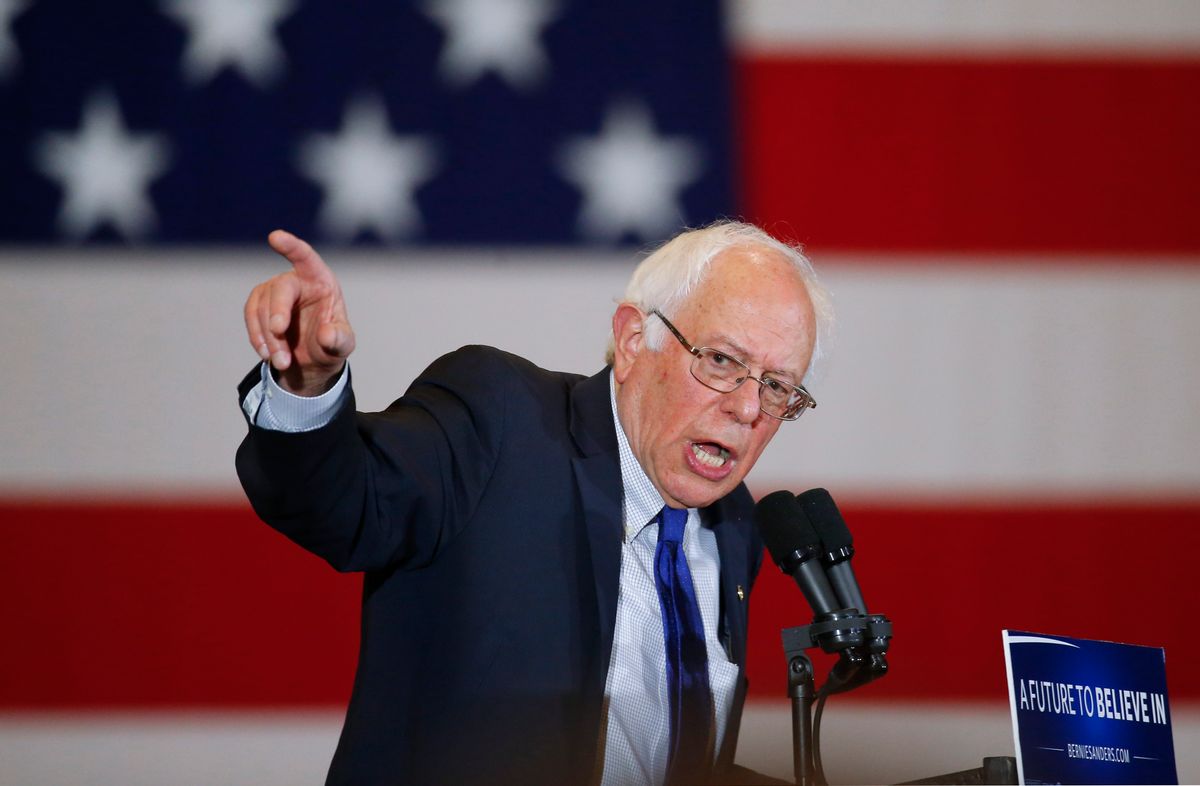Today, Bernie Sanders visits Philadelphia, the biggest city in a state critical to his insurgent bid’s narrow path to victory. Before taking the stage and delivering his stump speech, he should know that there is no more salient social justice issue in this city than public education: Public schools have been gutted by deep Republican cuts, the rapid spread of expensive-to-fund and barely-regulated charter schools, and mass school closings.
Though Americans have roughly 50.1 million children in public schools, neither candidate has spent much time discussing K-12 education. If Sanders wants to bring the political revolution to Pennsylvania, he has to speak up on the calamitous intersection of economic and racial injustice that is public education.
Sanders knows this. In January, he called for moving away from funding public education with local property taxes, which along with housing segregation ensures that American schools remain separate and unequal.
"One of the things that I have always believed is that, in terms of education, we have to break our dependency on the property tax, because what happens is the wealthiest suburbs can in fact have great schools but poor, inner-city schools cannot,” Sanders said at the Brown & Black Democratic Presidential Forum. “So I think we need equality in terms of how we fund education, and to make sure the federal government plays an active role to make sure that those schools we need it the most get the funds that they deserve."
The proposal is revolutionary. But it received little notice. That and Sanders’ more high-profile attacks on Chicago Mayor Rahm Emanuel over school closings were K-12 education’s big moments in the Democratic primary spotlight. They passed too quickly.
Like criminal justice, public education has been the subject of fierce political conflict, including between Democrats. But Hillary Clinton and Sanders rarely discuss K-12 education even as the Kansas state Supreme Court continues its long-running showdown with Republican Gov. Sam Brownback over funding, and the Chicago Teachers Union continues to fight Emanuel's neoliberal enterprise.
How is it then that a core issue dividing the left from the Democratic Party establishment has eluded much debate in a primary race that features a historic left challenge to the business-aligned party establishment?
I reached out to Frederick Hess, a smart source without much of a dog in the Democratic fight given that he’s a conservative education scholar at the American Enterprise Institute. Hess emailed that charters and teacher tenure “are bitterly divisive issues within the Democratic coalition,” including amongst black people. It’s “not clear that either Clinton or Sanders would benefit from wading into this.”
It’s true, the political dynamics are certainly complex. Clinton received early endorsements from the American Federation of Teachers and the National Education Association. But rank-and-file members protested. And those teacher activists most vocally opposed to school closings and the spread of charter schools are on their unions’ left wings, and likely more aligned with Sanders. And so as Clinton has sewn up union leadership support it may have been a strategic error on Sanders’ part to not make criticism of charters and school closings a central part of his campaign.
One other reason not to talk about public education is because federal involvement has typically been limited to funding poor students -- at least until the presidencies of George W. Bush, when No Child Left Behind ushered in high-stakes testing mandates, and Barack Obama, who used Race to the Top funds to advance a teacher-hostile agenda. Both became object lessons in the controversial things that presidents don’t want to do, rather than models for top-down progressive reform.
“I think both Clinton and Sanders are more than happy to avoid getting into it,” emails Bruce Baker, an expert on education finance at Rutgers Graduate School of Education.
But the fact that states are responsible for the lion's share of imprisonments and police abuses hasn’t stopped the candidates from calling for an end to mass incarceration. Nor should it have: The federal government does have power, and it could try to use that power for good. Plus, the president has the world’s loudest bully pulpit.
To be sure, both Clinton and Sanders have attacked NCLB’s (recently relaxed) high-stakes testing mandates. But they are now widely unpopular and safe to criticize.
(In 2001 Clinton voted for NCLB in the Senate. Sanders was part of a tiny minority of 41 to vote “no” in the House.)
In reality, the fights over so-called reform are distractions from the core issues marginalizing poor students of color: funding equity and segregation. And they are still hot to the political touch, narrowly defined as poor people’s issues and, yet more dangerously, poor black people’s issues—a reminder of race and racism’s enduring significance in these economically populist times. School segregation is largely a reflection of housing segregation, which is at least perceived as benefiting many white Americans who are not part of the wealthiest one-percent, let alone the top one-tenth of 1 percent. It's a problem that the federal government, the Supreme Court included, could do a lot to fix.
But the best case to make for ending housing and school segregation is in reality a populist one: segregation will continue to harm and destabilize communities nationwide because as long as poor people of color are forced to live in a small number of municipalities most communities risk being upended by demographic change. Sanders, who prioritized affordable housing as mayor of Burlington, likely understands this. Clinton, who lives in the might-as-well-be-gated community of Westchester, which has been subject to a fierce desegregation campaign, likely does not.
Americans have a lot in common when it comes to getting fleeced by the billionaire ruling class, which only a populist multi-racial movement can overthrow. But inequality also has a geography, and that grim map is chiseled into America’s separate and unequal neighborhoods and schools. Sanders would do well to make note of that in Philly.

Shares